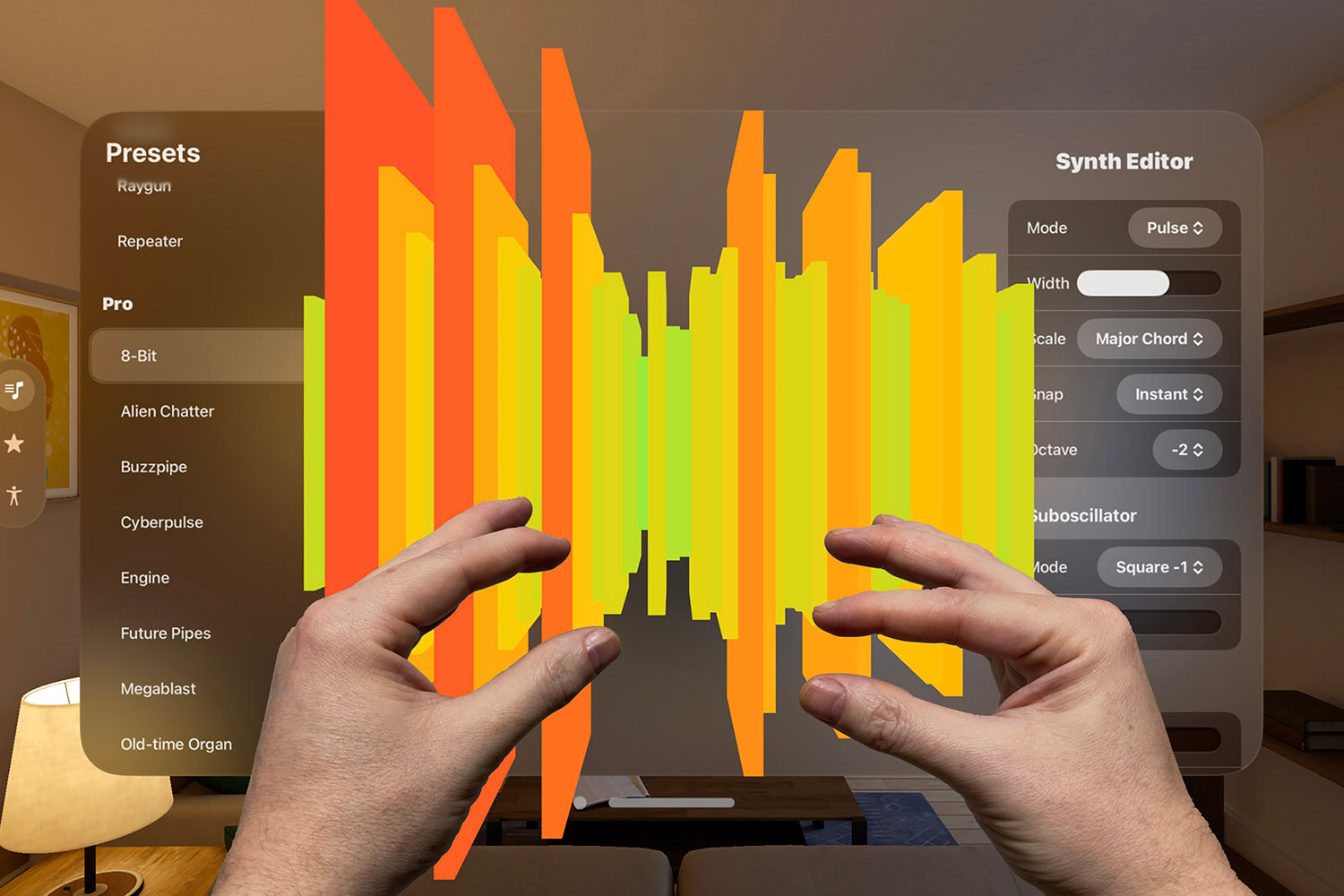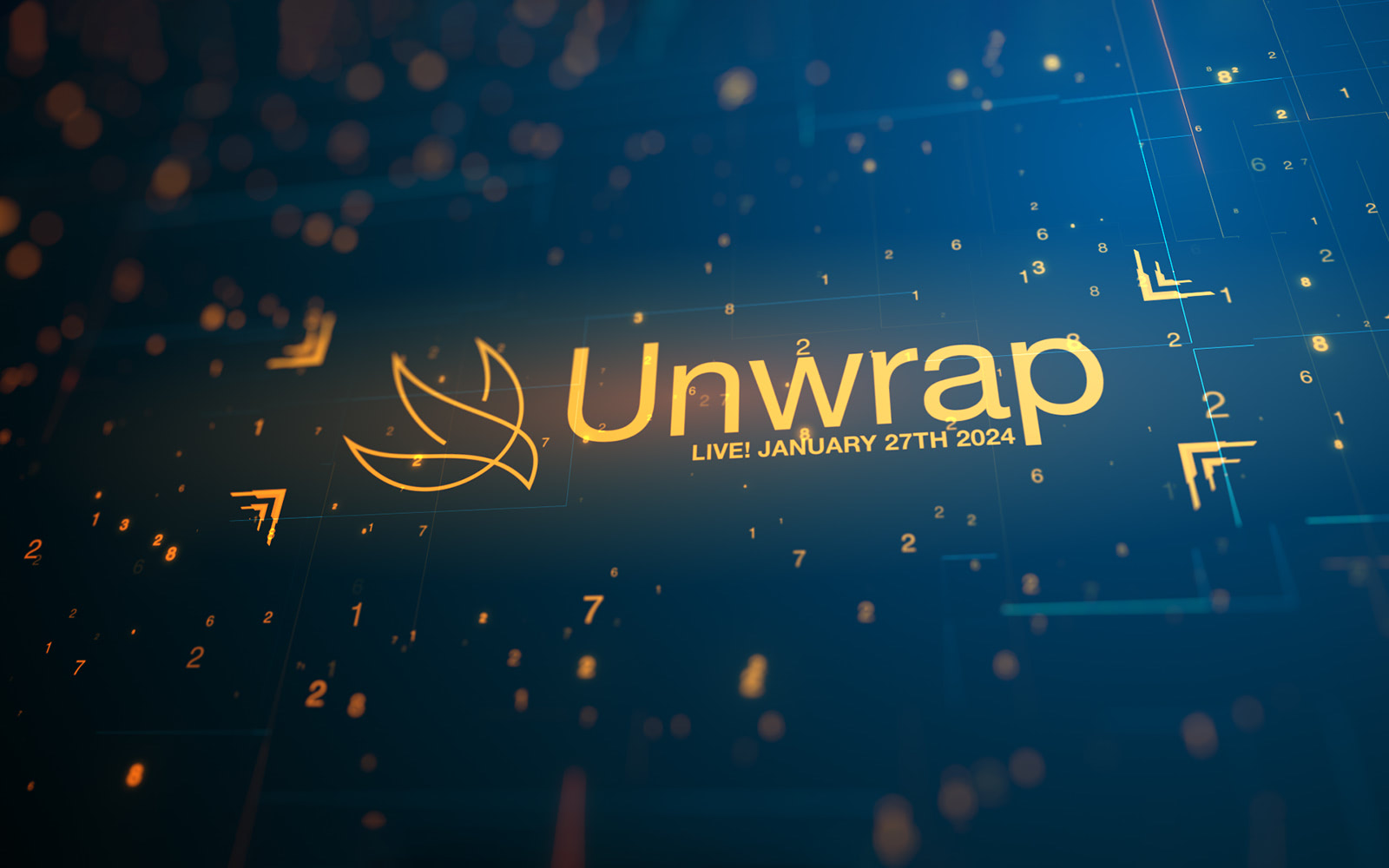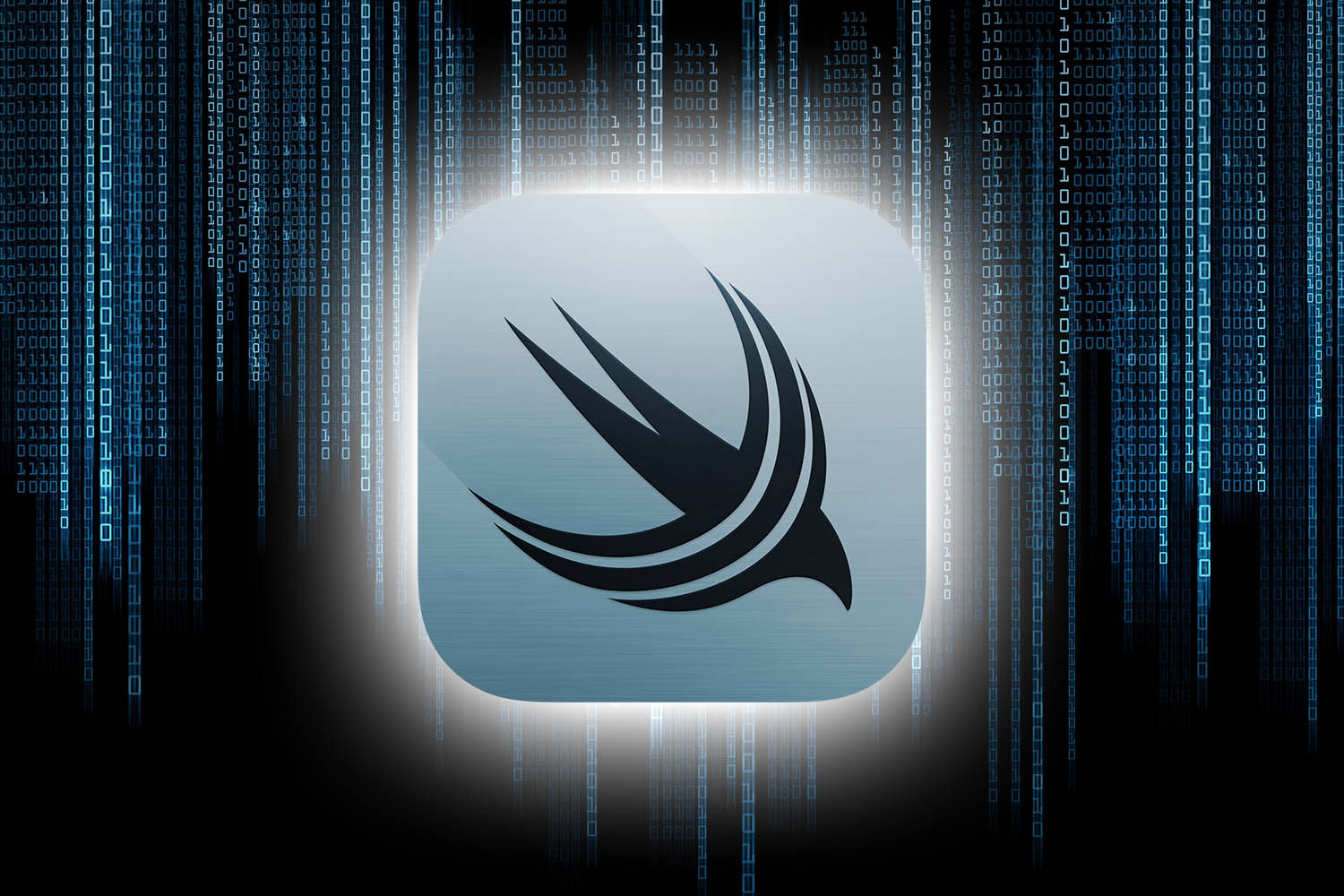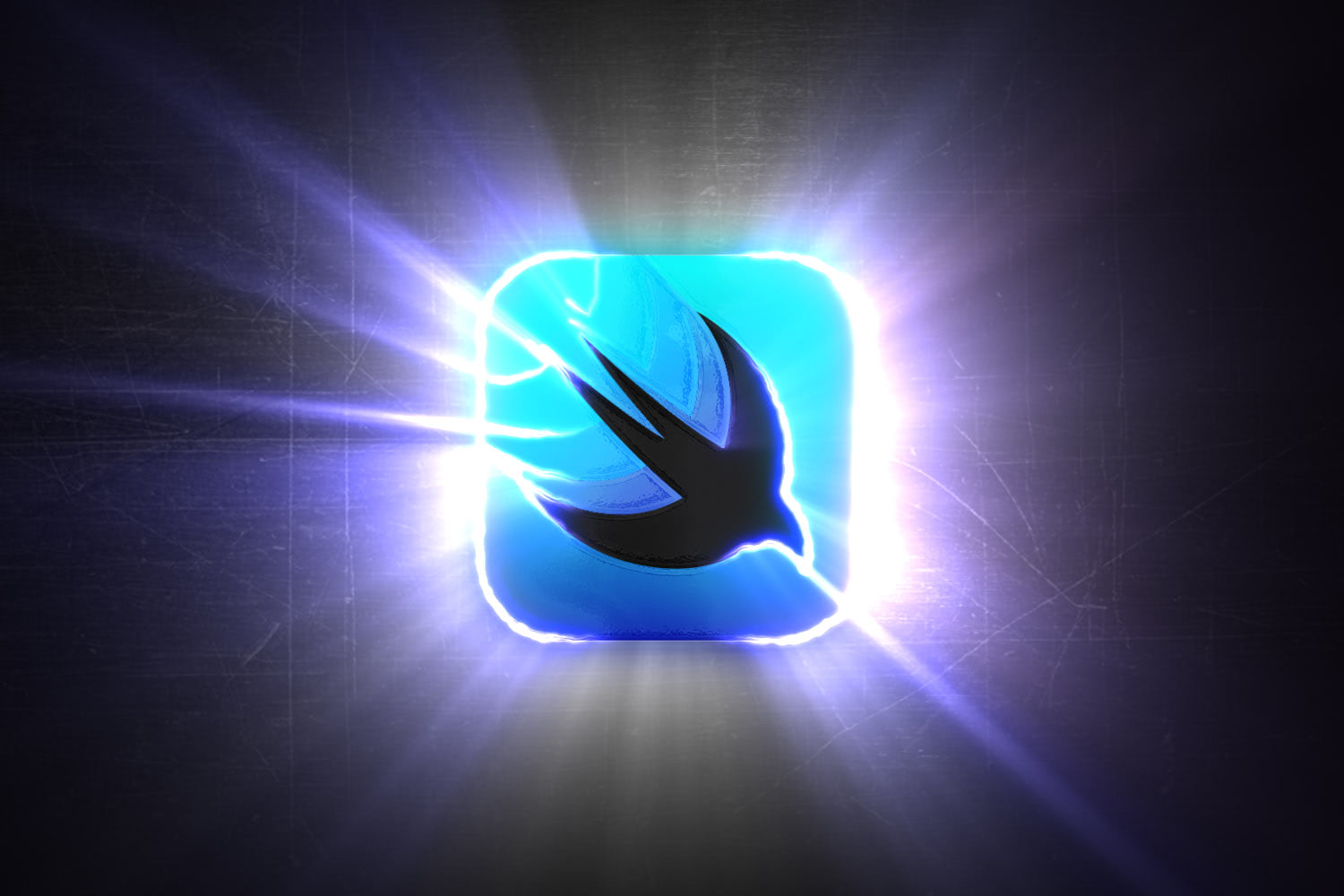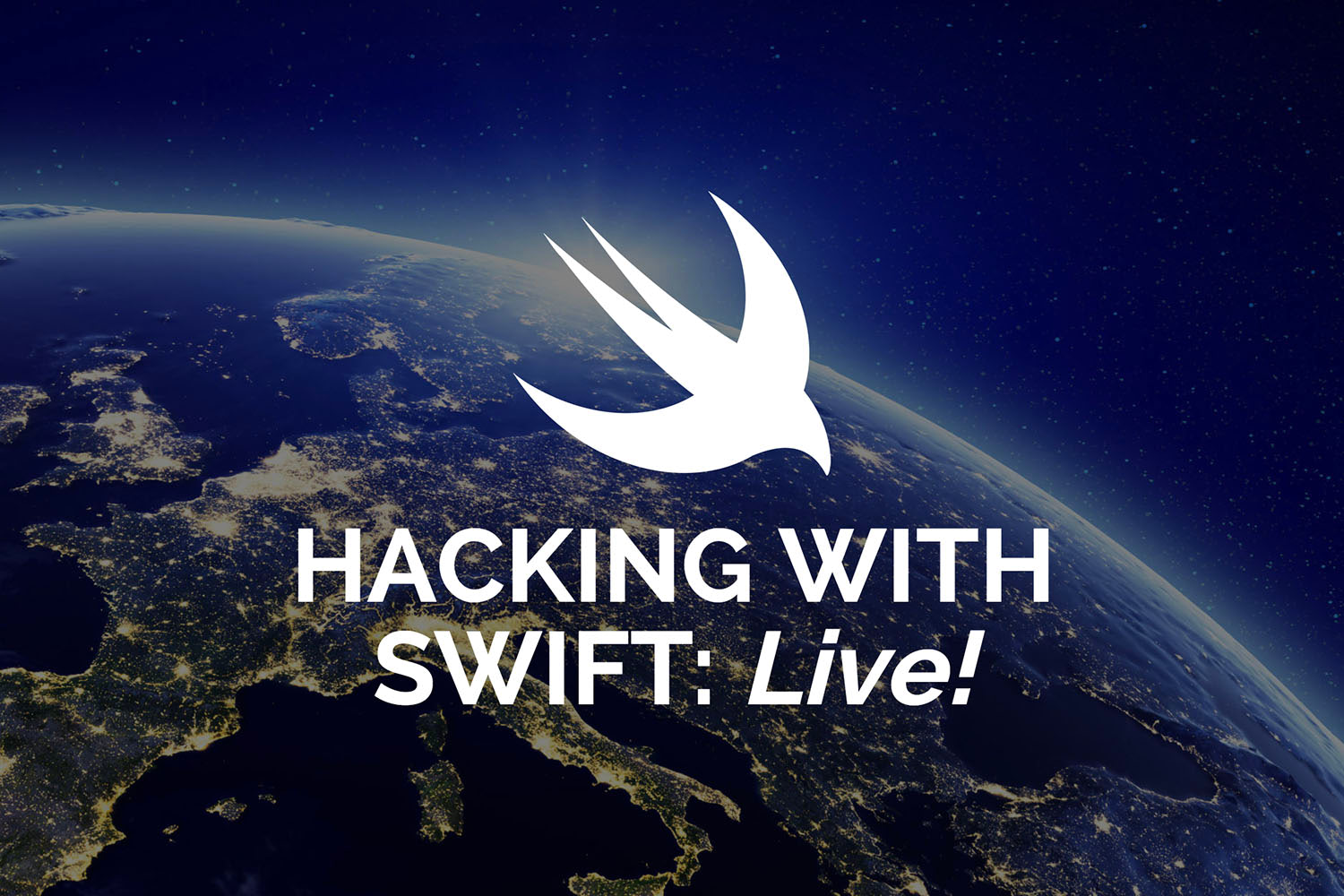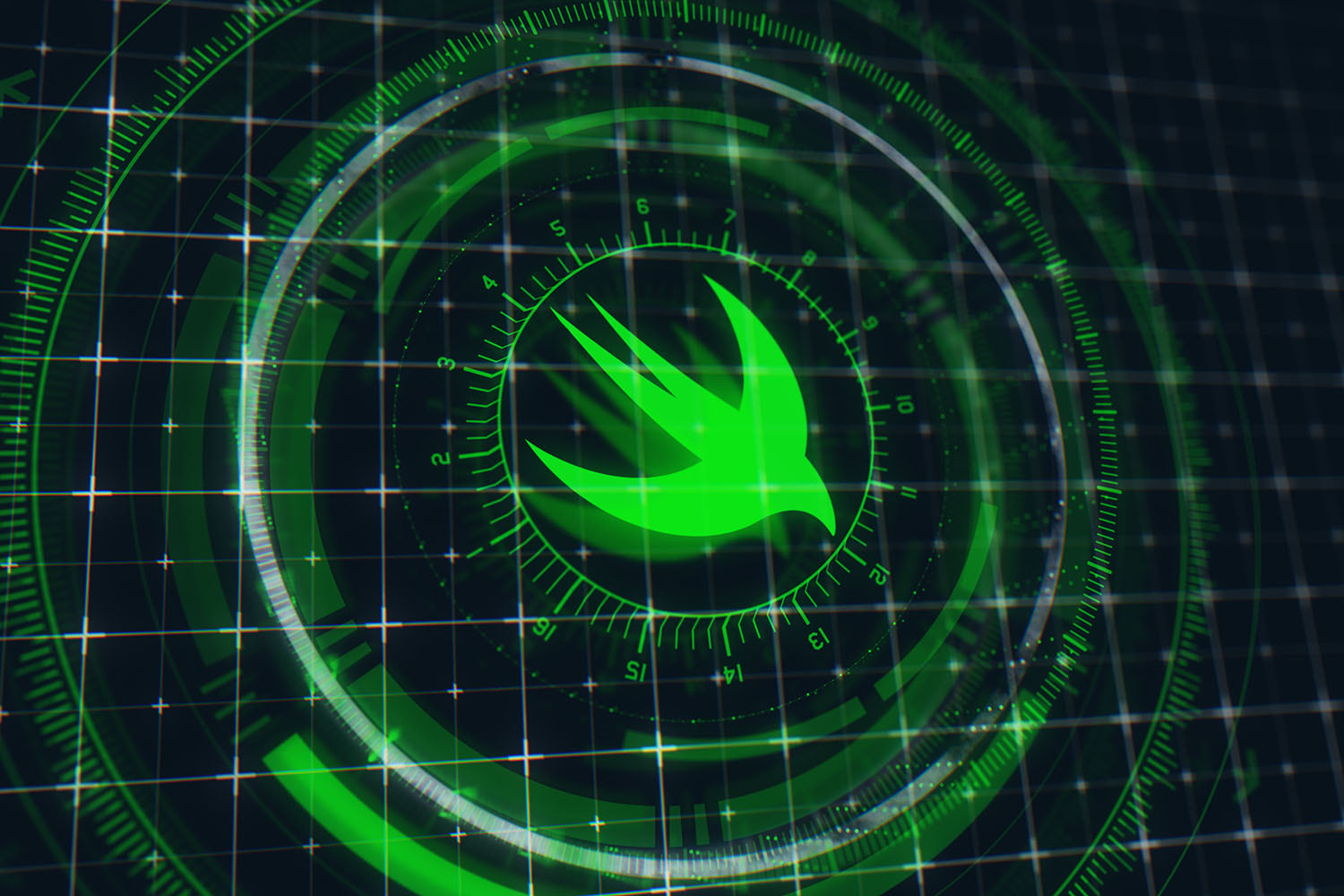Want to win the Swift Student Challenge? Previous WWDC scholars give their advice
How to submit Swift code guaranteed to make an impression
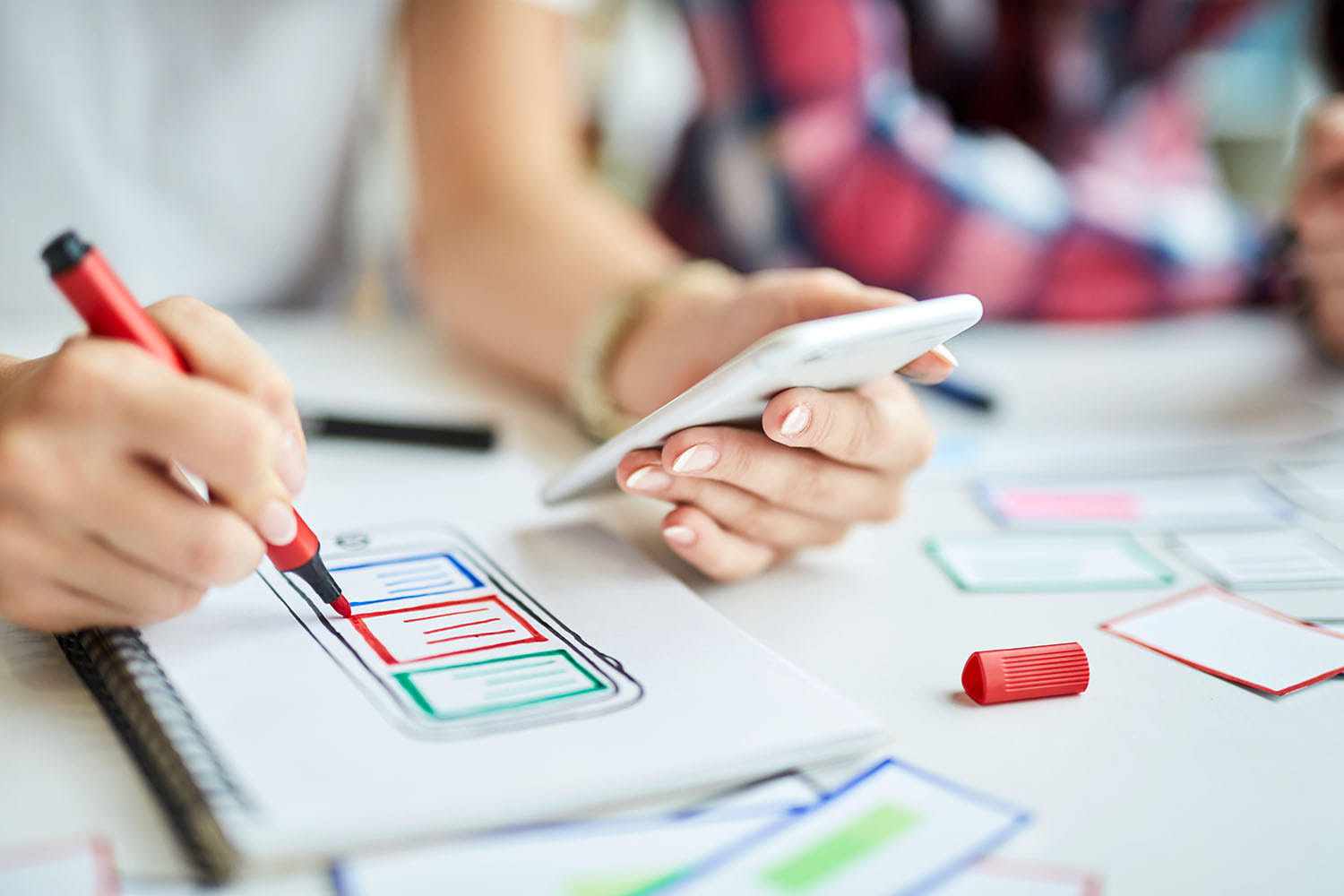
WWDC21 was just announced, and once again it offers a Swift Student Challenge program to encourage talented students and STEM organization members to build something great with Swift.
Every year I get emails from folks asking me for help: do I recommend taking part? Do I have suggestions for helping them win? Can I – gulp! – help them write their code? (Yes, yes, and an emphatic no, in case you were wondering!)
If you're thinking of putting forward your own project for the Swift Student Challenge, this article is for you: I tracked down a selection of folks who were lucky enough to win previous WWDC scholarships, and asked them for advice that other folks could follow.
I asked quite a few questions to make sure I covered all bases, but if you’re thinking of applying to Apple I hope this gives you the final push you need. I've been lucky enough to attend WWDC three times before, and each time was enjoyable and educational – go for it!
This article would not have been possible without the help of Abdulhakim Ajetunmobi, Patrick Balestra, Samuel Goodwin, Kilian Koeltzsch, Adi Mathew, Kabir Oberai, Frederik Riedel, Zach Simone, and Andrew Walker.

SPONSORED Join a FREE crash course for mid/senior iOS devs who want to achieve an expert level of technical and practical skills – it’s the fast track to being a complete senior developer! Hurry up because it'll be available only until April 28th.
Sponsor Hacking with Swift and reach the world's largest Swift community!
Introduce yourself: What's your name, which country are you from, which WWDC scholarships did you win, and what age were you when you first went as a WWDC scholar?
Abdulhakim Ajetunmobi: My name is Abdulhakim Ajetunmobi, I’m from London in the United Kingdom, and I won a WWDC 2016 scholarship when I was 19.
Patrick Balestra: I am Patrick Balestra and I am 21 years old. I am from Switzerland and I am soon graduating from university with a bachelor degree in Informatics. When I first applied to WWDC I was 14 years old but only at my third attempt I was selected as a WWDC scholar in 2014, when I was 17. I won the scholarship in 2015 and 2017 too, even though I wasn't able to attend in 2015 due to some mandatory high school final exams.
Kilian Koeltzsch: My name's Kilian and I'm from Dresden, Germany. I visited WWDC '16 and was 23 at the time studying a mix of computer science and mechanical engineering.
Samuel Goodwin: I’m Samuel Goodwin, raised in North Carolina. I went to WWDC the year before the iPhone. I was in college, age 20.
Adi Mathew: My name’s Adi. I won the 2017 scholarship. I’m actually from a few different countries so I usually say it doesn’t matter. What does matter is what emoji flag I wore at WWDC17: it was the US flag.. I was 24 and a grad student when I first went.
Kabir Oberai: I’m Kabir Oberai and I live in India. I won a WWDC scholarship for the first time in 2017, when I was 15.
Frederik Riedel: I'm Frederik Riedel and I'm from Stuttgart in Germany. Right now I live in Berlin – Germany's Silicon Valley! I won my first WWDC scholarship in 2013 when I was 17 years old; since then I've attended WWDC every year on a scholarship ('13, '14, '15, '16) – until last year where I did an internship at Apple.
Zach Simone: Hi! I'm Zach, from Sydney, Australia. I was 18 years old when I attended WWDC as a scholar in 2016.
Andrew Walker: I’m Andrew Walker from Edinburgh, United Kingdom. I first attended WWDC as a Scholarship winner in 2015 at the age of 18 and have since attended two further times in 2016 and 2017.
What made you want to apply to the scholarship program in the first place?
Abdulhakim Ajetunmobi: I had friends who had won the scholarship before who told me about the experiences that they had. I had also recently started iOS development with the launch of Swift in 2014 so I thought it would be a good opportunity for me to learn more about iOS and meet more people in the iOS community.
Patrick Balestra: As soon as I discovered Apple, I was following a lot the news and every major event live on the biggest Apple news sites. Having the opportunity to attend one of these events in person was incredible. So I gave the scholarship program a try almost every time since 2011.
Samuel Goodwin: A friend of mine who was the Apple rep at my school told me about it and thought I should try. He was going anyway, so he helped me grab a cheap flight and we split a hostel room.
Kilian Koeltzsch: Showcasing an app I've developed as a requirement for the scholarships seemed like a fun idea and I've been wanting to go to WWDC for several years. I didn't really have the scholarship opportunity in my mind the years before.
I wanted to meet the people who create the most delightful products I’d ever used.
Adi Mathew: I think anyone who has worked with any Apple platform will have a ton of questions about how things actually work and a curiosity about how what they as developers use was created – and I’m no different. I also wanted to meet the people who create the most delightful products I’d ever used. So in short, I’d applied because 1) I couldn’t afford a ticket and associated costs 2) wanted answers about the platform and the environment in which it was created.
Kabir Oberai: I’ve been passionate about iOS app development since I was 12 years old. WWDC sounded really exciting to me, and I set it as a challenge to myself to get in and meet others like me.
Frederik Riedel: I've been writing my first apps for iOS since 2011, among them my popular app iRedstone. Working in this area made me feel excited about WWDC where Apple would present all these new technologies, software and sometimes even products.
Zach Simone: WWDC was an event that I'd followed from afar for many years. I was aware of the scholarship program, but hadn't really considered the possibility of applying. A combination of it being the first year I was able to go (both because the timing worked and financially), and the fact that you could submit a project you'd worked on up until that point meant that the application came together really well. I didn't have to start on a fresh project purely for the scholarship application, and it was good motivation to push a side project forward.
Andrew Walker: I remember watching the WWDC 2014 keynote during which Tim Cook acknowledged the year’s Scholarship winners. Prior to that I had no awareness of the program but it pushed me to begin to teach myself to create iOS apps. I spent the next year developing my skills until I was capable of building an app to submit in 2015. Thankfully it worked out!
What had you heard about WWDC before you first went?
Abdulhakim Ajetunmobi: I had only heard about WWDC because a friend of mine sent me a link to the livestream in 2014, which essentially was a life changing experience. Before Swift was launched I was just getting involved with android development but had always hoped to get involved in iOS. The launch of Swift pushed me to get involved a bit more in development in general, I read the Swift book from Apple until I was able to get my hands on a MacBook and start making apps.
Patrick Balestra: I knew some people through Twitter and Facebook who attended WWDC in the previous years and every June, I was following closely what people were doing around Moscone Center. This is how my excitement to experience the event myself grew year after year.
Samuel Goodwin: I just heard it was a developer conference for people who worked on Apple’s platform. I had just learned how to do things in Objective-C on the Mac, so I thought it’d be fun.
Kilian Koeltzsch: Lots of awesome stuff! Especially the chance to meet and talk to so many great and talented people and socialize at fun get-togethers every evening.
Adi Mathew: Not much I’m afraid: I’m probably the first person from my University in Michigan to win one. But I’d read online that it was an amazing, inspiring and absolutely fun filled event that’s unlike any other software conference. (And it exceeded all my expectations!)
Kabir Oberai: I’d heard a lot of praise about WWDC before going. Firstly I’d heard that there was a big chance of meeting Craig and Tim. I had also heard that it was the best place to meet other developers, and that this was an important part of the experience.
WWDC was always that magical place where Apple would show the new software and products.
Frederik Riedel: WWDC was always that magical place where Apple would show the new software and products. It seemed to be an unreachable dream to be part of one of those Keynotes – I still cannot believe that I was given the opportunity to attend those during the last couple of years.
Zach Simone: I knew of WWDC and what it was all about. I'd watched the keynote and certain session videos online in years past, and had kept up-to-date with what was happening at the conference via Twitter.
Andrew Walker: Back in 2014 I hadn’t heard a whole lot about WWDC. I knew of course that there was a keynote for introducing new products and services as I’d followed coverage for years. Other than that, my understanding of the event was pretty limited. It just wasn’t something I’d ever researched, assuming at the time that attendance would be limited to employees and experienced developers.
By 2015, I was a lot more knowledgeable of the conference having spent the past year improving my skills with the goal of attending. I’d watched plenty of videos from prior sessions, read about other elements such as the bash and generally had a fairly good appreciation for the goings-on of WWDC. What I didn’t expect was just how much fun the week can be, especially as other conferences are generally rather bland (albeit useful).
Apple like to give their scholars a challenge to complete. What code did you submit?
Abdulhakim Ajetunmobi: The year I went Apple gave us the brief to submit any app that we liked and they would be looking for the use of new Apple technologies in interesting ways. 3D touch had just launched with the iPhone 6s so I decided that I wanted to use that Apple technology. I created a small game in SpriteKit called stress popper, it has balloons going from the bottom of the screen to the top. When you popped them it played a piano note, then 3D touch was used to control the volume, a harder press made a louder noise.
I didn’t think it was good enough to win the scholarship when I completed it.
I didn’t think it was good enough to win the scholarship when I completed it because it was very simple and had only a few hundred lines of code most of which was creating a UI in SpriteKit. Looking at it now after just under 2 more years of iOS work, speaking to the Apple developers at WWDC and an iOS internship it is very cringeworthy but I am still proud of what the code meant to me at the time and the doors that it opened.
Patrick Balestra: The first 2 years I applied, there was no code requirement. I was very young and I just got into development and Apple only required to answer some questions to be eligible for a scholarship. The program evolved a lot in the following years and initially students were required to submit an interactive CV iOS/macOS app. It was a very fun task where I could express my creativity. Looking back at the code now, I can only see how my skills grew from those codebases. My projects were usually around a few thousands lines of codes since we usually only have up to 10 days to write a project.
Samuel Goodwin: I wrote a bad version of Pong for the Mac and submitted that for my challenge. Some of my friends gave me [negative feedback] for it and thought it was not nearly good enough for anyone to give me a free ticket for, but Apple’s review team disagreed. It wasn’t much. I didn’t even implement a basic computer player, so you had to control both paddles manually. I lost the code sadly, or I’d post it.
Kilian Koeltzsch: For WWDC '16 Apple asked for a showcasing of basically any kind of iOS app. I wrote a bit about the two apps I was developing/maintaining at the time. They were definitely nothing great, one for finding open public parking spots in several European cities and the other is my university's official app for navigating the campus. Both are definitely rather simple apps, but they serve their purpose.
Adi Mathew: In 2016 I submitted code that was built to impress and it was not accepted. In 2017 I submitted code that I really wanted to write and didn’t have time to (as a Masters candidate in two majors, time just vaporizes), so my scholarship application was written in 2 days and 2 sleepless nights and I was certain it wouldn’t be chosen.
My submission was a prototype of a way to make 2D games more fun and accessible to VoiceOver users (my focus in grad school is HCI and accessibility, so both years my submission was in the same field. The difference to me was that in 2017, though I wanted the code to be good enough to win, this really was a project I wanted to see work for my own personal reasons and I guess it showed). Looking back at the code, I’m equally surprised at how readable it is and a little taken aback by my lack of Swiftiness (I used a Pythonic style loop thing instead of using Swift’s iterators/sequences, etc.)
Kabir Oberai: Last year I made a playground that allows others to create Rube Goldberg machines. The playground consisted of a fully fledged API that used SpriteKit behind the scenes, but abstracted the internals for the user. I also made some of my own Rube Goldberg machines as examples. Although I still quite like the code that went behind it, I think I could’ve done a better job with the UI and example machine designs.
Zach Simone: The year I was awarded the scholarship (2016), Apple allowed applicants to submit any iOS project they'd worked on either previously or that they were working on on an ongoing basis. This was in addition to answering two essay questions. I submitted a side-project that I'd worked on inconsistently for a while up until that point. It's called Daily Steps and is an app still available on the App Store today. It's essentially a glorified pedometer app, but I'm most proud of the Apple Watch app. To this day, the watch app and complication are things I'm proud of, and a lot of the work on the watchOS features of Daily Steps was done while trying to polish the version I would eventually submit to Apple as a scholarship application.
I definitely cringe when I read through some of the old code in Daily Steps, and even when I look at the iOS app. But the watch app is something I'm still quite satisfied with. Thanks to the skills and opportunities afforded to me by having attended WWDC, I'm a much better developer now than I was back then, and while it is no longer much of a challenge for me to work on and update Daily Steps, I do keep it around and provide basic updates such as support for new versions of iOS and watchOS, and support for new iPhone screen sizes. So in a way it makes me cringe, but in another way it makes me proud, as it is a project I've learned a lot from, and has lead to bigger and better projects, as well as an iOS developer while continuing my University degree.
I decided to create a Guitar Hero-style game where the player aims to collect points by hitting notes with a plectrum controlled by their mouse.
Andrew Walker: My first submission in 2015 fulfilled the requirements of the application by being a form of interactive resume which introduced myself and my projects to Apple. As an estimate, I would guess that it was around 3000 lines of code. At the time it was quite advanced in comparison to previous apps I had created, however, my 2016 submission definitely put it to shame. Although the guidelines were less specific in 2016, I stuck with the resume theme but went all out by integrating a vast array of technologies. Apple were looking for creative use of their frameworks, so I did my best to integrate as many of the new additions as possible (3D Touch, WatchKit and PassKit etc.) in such a way that would make the content fun and interesting. I couldn’t have been more pleased with that submission.
My most recent submission was slightly different. Apple were looking for Playgrounds rather than full on applications which meant we had to get creative. It took me a significant amount of time for me to settle on an idea. Eventually I decided to create a Guitar Hero-style game where the player aims to collect points by hitting notes with a plectrum controlled by their mouse. To add some additional creativity, I recorded the guitar track of the song used in the game myself. The finished product was strong although I ran into some issues along the way which meant that not all planned features were fully implemented.
What was your reaction when you heard that you'd won a place?
Abdulhakim Ajetunmobi: My reaction was initially disbelief – I thought someone had got a hold of my email and was playing a horrible joke on me. But after a few minutes when I realised that it was real and talking to people that I submitted with, I was super pleased. I had always been an Apple fan and getting the opportunity to fly to San Francisco where loads of tech companies are and to hang out with Apple for a week sounded amazing.
At about 4am, I received the acceptance email. My mom woke up too and in a matter of minutes, my whole family was trying to figure how they could let their 17-year-old son fly to the other side of the world for a conference.
Patrick Balestra: In 2014 I was in Europe so results were being sent out when I was asleep. I was waking up from sleep every 30 minutes or so due to my excitement. At about 4am, I received the acceptance email. My mom woke up too and in a matter of minutes, my whole family was trying to figure how they could let their 17-year-old son fly to the other side of the world for a conference. It was one of the happiest moments in my life for sure.
In 2017, I was flying back home from a family holiday. The flight I was on had WiFi but it was so slow, that even though I was refreshing my inbox every 30 seconds, new emails were downloaded every 10 minutes. And so, I received the winning email by surprise (I was expecting it a few hours later during the night as usual) on a flight home. Unfortunately, I couldn't jump around too much!
Samuel Goodwin: I was very surprised and excited. I immediately bought a plane ticket.
Kilian Koeltzsch: It was definitely unexpected and I was super happy!
Adi Mathew: I’m usually a very quiet person. I screamed so loud and hard, I went hoarse for the day. Then I double checked to make sure it wasn’t spam.
Kabir Oberai: I think it was the best moment of my whole life. I was quite expecting to get rejected, so the acceptance email came as a huge surprise. I rushed down the stairs in my night suit to tell my family, and when I gave my mother the good news she thought she was dreaming.
Frederik Riedel: I couldn't believe it. I was going to San Francisco. I would be able to attend WWDC. See Tim Cook live on stage. Wow. One of the best days of my life!
Zach Simone: I didn't expect it, so there was definitely a lot of shock involved. I remember seeing the ticket appear in the developer portal on Apple's website, and refreshing a few times just to make sure I wasn't seeing things! After comprehending that I was, in fact, traveling to San Francisco for WWDC the following month, I started thinking about everything else that needed to be done, such as booking flights.
Andrew Walker: Excitement! You’d think that after winning a place twice before that the third time would be less special, but it absolutely isn’t. Each WWDC is unique which makes the moment you receive the acceptance email exhilarating every time.
Obviously you get free conference tickets for WWDC itself – how was the event itself?
Abdulhakim Ajetunmobi: The event was amazing. The standout from the week were the other attendees. Normal WWDC attendees were very interested in speaking to the scholars and were super happy to be sharing the space with us. The other scholars were great to hang out with and chat about their experiences with school and getting the scholarship too since everyone is literally from a different part of the world.
I only realized a few months later who Chris Lattner was since Swift was announced at that very conference and nobody knew the history behind it.
Patrick Balestra: The week of WWDC is just a unique rollercoaster of emotions. Queuing outside the venue on Sunday night/Monday morning was one of the best experiences (I couldn't sleep anyway). In 2014, there were some companies distributing food and coffee while we were rumoring what the covered banners could hide inside the venue. During the WWDC Bash, we also got some special guests such as Jony Ive and an Apple engineer named Chris Lattner in 2014. I only realized a few months later who Chris Lattner was since Swift was announced at that very conference and nobody knew the history behind it.
Samuel Goodwin: I also went to the labs with this video diary app I was working on (I had just gotten a laptop with the integrated video camera). I had no idea what I was doing with the video frameworks and one of the guys who worked on it spent about 2-3 hours explaining to me how to use it. He could easily tell I hadn’t found some bug or anything and just actually had no clue what I was doing, but he didn’t care and took my project just as seriously as he might have taken someone from Adobe’s big-money project.
Kilian Koeltzsch: Some of the talks were definitely highlights, but it was even more fun just seeing a few well known faces from the Cocoa community under the fellow attendees and getting to know a few of them. Also the labs were a fantastic opportunity to speak to Apple developers working on the frameworks I had questions about. The pointers they were able to give me were super helpful.
But if there’s one thing that consistently stands out: its the people: from Apple and the community. It is just hard to describe in words being in a place where everyone is as excited and crazier than you are about Apple technologies and tech in general.
Adi Mathew: Now, I might have a slightly tinted answer, since I also won a scholarship for a couple other conference as well and was dashing between them the first couple days. But I thought WWDC and neighboring events were above and beyond what I expected. The people, events and music were just all done so well, its hard to imagine how much work went into planning and organizing them. Highlights for me were definitely the Keynote and chat with Michele Obama. Fall Out Boy at the Bash was icing on the cake. The sound quality of music at the Keynote & live is something I don’t see mentioned but it is very very impressive, but might depend on where you’re seated.
But if there’s one thing that consistently stands out: its the people: from Apple and the community. It is just hard to describe in words being in a place where everyone is as excited and crazier than you are about Apple technologies and tech in general. I don’t know if Apple folk are all like this, or they only send the friendliest to WWDC, but absolutely everyone from Apple at WWDC is just incredibly humble, open, welcoming and talented. Talk to all of them, including the non engineer/designer designated staff.
Kabir Oberai: WWDC was an absolutely amazing experience. Besides the event, my favorite part was discussing my apps with Apple engineers and receiving feedback. I also loved interacting with other developers and designers. One incident that particularly stood out was when I got to meet Craig Federighi and take pictures with him. I also met Chris Lattner at the Realm WWDC 2017 Swift Panel, which was extremely exciting.
Frederik Riedel: There are multiple parts of the week that definitely stood out. Of course the Keynote. But especially the whole atmosphere created by all these amazing engineers from all over the world! Wow. I really enjoyed to talk to Apple engineers in the labs as well. I collected my questions and problems over the year and was able to talk to the responsible developers directly top figure out where the problem was. And don't forget to attend all these amazing parties! It's a great way to meet even more people from that community.
The way that I describe my WWDC experience was that each day was exactly what I expected, and then a bit more.
Zach Simone: The way that I describe my WWDC experience was that each day was exactly what I expected, and then a bit more. Of course there are highlights, and the keynote is a hugely exciting day as you would expect, but it's the little things that I didn't expect that made WWDC so special. It surprised me just how helpful the Apple engineers in the labs were. I recall inquiring about a specific issue with Apple Watch complications when the Apple staff member I was speaking to chuckled, and told me they could point me in the right direction. The next minute, I was sitting down with an engineer who had built the complications for several of Apple's own watchOS apps. You can't get that kind of help anywhere else!
Other than the labs, the people I met were amazing. I didn't know what to expect when meeting fellow scholars and attendees, but as it turns out lots valuable connections were made - many of which with people who are also from Australia who I've since been able to maintain contact with and see at local events such as meet ups and conferences.
Apart from attending the conference, did Apple organize other events for you?
Abdulhakim Ajetunmobi: Apple organized a scholarship orientation on the Sunday afternoon so we could meet other scholars and get registered before the big day. This was also where Tim Cook showed up and kindly stuck around to take pictures with us and sign our badges. Apple also had a lounge area set aside in the conference centre so if we ever wanted to take a break there was always a reserved area with Apple employees to hang out with. Most of the other events that I went to were organized by other tech companies in the area. I recommend going to these, be careful since some are over 21 only, because you get to meet even more people away from the hectic conference day.
In 2017, they organized a full day where we could meet Apple engineers and listen to some talks regarding challenges faced by Apple engineers in building an Apple product.
Patrick Balestra: In the last few years, Apple put a lot of effort in improving the conference for all developers, not just scholarship winners. When I first went in 2014, they only organized a small evening event at the Apple Store in SF where we received some more WWDC swag such a notebook and a pen. In 2017, they organized a full day where we could meet Apple engineers and listen to some talks regarding challenges faced by Apple engineers in building an Apple product. We received a unique and inspiring look at what goes into a product behind the scenes in years of research and problem solving.
Samuel Goodwin: We had an awesome introductory talk from Wil Shipley about why developing on the Mac was a good idea, even though it was the small minority back then.
Kilian Koeltzsch: There was a special event for scholarship winners on Day 0 (the day before WWDC officially started). It was basically a scholarship winner meet-up with some extra stuff on top, but we were kindly asked not to talk about more of the specific details. A few pics from that day were in the WWDC app's gallery.
Adi Mathew: As a scholarship winner Apple gives you a full extra day of events before everyone else even arrives. Use it to acclimate and prepare for a blast of a week. There are so many events around WWDC. Attend as many as you can. If you meet the right folks you may even earn a trip to Caffe Macs and more ;). Did I mention how delightfully nice everyone is there?
Kabir Oberai: On the day before the conference began, we were given a briefing with some tips on how to make the most of the conference. We also got to meet Tim and a few lucky people even managed to take selfies with him. Other than that, each of us was given an Apple TV 4 along with a special WWDC Scholar pin.
Frederik Riedel: Definitely. Picnic under the Golden Gate Bridge. Mingling in the Apple Store Stockton Street. Orientation in the Four Seasons Hotel. Orientation in the Mission Bay Conference Center. Meeting Tim Cook. Meeting Jony Ive. Meeting an Astronaut. The Bash with Walk The Moon, Vampire Weekend, Bastille, DJ Qbert, Good Charlotte, Fallout Boys...
Zach Simone: The day before WWDC began (on the Sunday) Apple organized an orientation day where they sat us down, motivated us with some presentations, and told us more about the week and what to expect.
Do you think being a WWDC scholar made a big difference to your career path?
Abdulhakim Ajetunmobi: WWDC was great, it made me realize that I would like to do iOS more. I made loads of contacts at WWDC from people at Apple or other big companies such as Snapchat and Google, people involved in open source iOS work such as CocoaPods and people working in startups. Having a WWDC scholarship on my resume is always good because it provides something to talk about in interviews and interviewers are always keen to learn more about it.
Patrick Balestra: Being selected as a WWDC scholar positively influenced my career path. I met a lot of people and Apple engineers during WWDC. With almost all of them, I still keep in touch nowadays after years we first met. All conferences create great and useful connections for future collaborations or jobs. And of course being recognized by Apple itself for your work looks great on the resume.
I specifically avoided programming and thought it would just be a thing I did for funsies. I would maybe not be a developer now if I had not gone.
Samuel Goodwin: I went to school for Electrical Engineering, I specifically avoided programming and thought it would just be a thing I did for funsies. I would maybe not be a developer now if I had not gone. Meeting Apple engineers, hearing explanations of so many things, and meeting the indy devs at bars after (I wasn’t old enough to drink yet and had to sneak into bars anyway) made me think about programming as 1) a thing I could do for work and enjoy and 2) a thing I could use to control my future and eventually be independent myself.
Kilian Koeltzsch: It definitely made an impact and solidified my ideas for my career path.
Adi Mathew: For me personally it was an unparalleled source of inspiration: I met my heroes and they were exactly how they seem on media: humble, insanely talented and full of advice. This is probably gross, but I’m still wearing my WWDC17 attendee wristband, simply because its such a good daily reminder of so much that I learned in 7 days.
Frederik Riedel: Yes. I wouldn't be where I am today without Apple. I would've studied something unrelated to Computer Science. The WWDC scholarships with all their benefits were an amazing opportunity for me – and in the end helped me to land an amazing internship last year in the iOS Safari team.
Zach Simone: WWDC helped me learn about the great iOS developer community. Meeting people who are passionate about what they do and truly love their work made me realize that software development was the career I wanted to choose. Before going to WWDC, I wasn't set on a career as a software developer. I am now. I didn't know much about the iOS developer community before WWDC - especially not that there was a community in my own city! Since WWDC and having met so many awesome people, I've regularly attended meet ups, and even a few other conferences, at which I've met great people and made invaluable connections. Through a connection I made at a local meet up, I recently started working as an iOS developer.
Andrew Walker: There can’t be many places better than WWDC to make contacts in this industry. It’s just the perfect environment to meet interesting people, particularly amongst the scholarship winners where there’s a real sense of community.
WWDC also undoubtedly makes a significant impact on your resume, particularly as I’m confident that it helped in securing my current job as a software developer.
WWDC also undoubtedly makes a significant impact on your resume, particularly as I’m confident that it helped in securing my current job as a software developer. I’ll be interning at Apple this summer and the scholarships will definitely have played a significant role in preparing me for that experience once the time comes.
If you could have done one thing differently, what would it be?
Abdulhakim Ajetunmobi: Made the trip to Yosemite National Park! and attend more labs. Sessions are all recorded so if you have a lab you would like to attend go for that instead. Or even if you have nothing particular to ask attend the labs with a friend and sit in on the conversation, you can learn all sorts of new things by speaking to the Apple developers who worked on the APIs.
Samuel Goodwin: I should have made more effort to remember and keep up with all the awesome indy developers I met.
Kilian Koeltzsch: I definitely should've applied to earlier years! I also heard that it's a lot of fun visiting some of the other conferences taking place during WWDC, but I was so overwhelmed my first year there that I didn't really have a chance to do all of that.
I would talk to more people. I was just awe-struck, star-struck and lost my bearings seeing so many big names and people I’ve learned so much from that I forgot a lot of what I wanted to ask.
Adi Mathew: I would talk to more people. I was just awe-struck, star-struck and lost my bearings seeing so many big names and people I’ve learned so much from that I forgot a lot of what I wanted to ask and showed my fan side more than my creator side. Note down everything you want to find out and ask the day you get your scholarship.
Kabir Oberai: I had a lot of questions to ask the Apple engineers but naturally I forgot them all when I actually met them. So I should have prepared a list before-hand, consisting of all the questions that I wished to ask.
Zach Simone: It would be to have attended fewer sessions, and instead go to more labs, or even just hang out in the common areas to meet more awesome people. Oh, and I regret not having said hi to Marco Arment when he was working on a table opposite me!
What's your number one piece of advice for WWDC scholars this year?
Abdulhakim Ajetunmobi: Speak to as many people as possible, you have no idea who you will bump into and what they might mean to you in the future. Some of my closest friends from around the world were made at WWDC. Also, attend all the labs!
Apple wants to see your passion for programming and you will be judged based on many factors, not just technical skills or design.
Patrick Balestra: Be creative, try to create something that represents best your skills and what you're passionated about. Apple wants to see your passion for programming and you will be judged based on many factors, not just technical skills or design. Your submission should be something you're proud of open-sourcing and showing to the world!
Samuel Goodwin: Things are way different now, but the labs are still worth getting into. Even if you just aren’t sure how to do something, go find out from the source.
Kilian Koeltzsch: Same as for any conference: talks are awesome, definitely visit those that sound interesting, but don't fill all your available time slots. Use the time there and talk to other attendees. Get to know some of the fantastic people working at Apple and have tons of fun at WWDC. It's such an awesome conference.
Adi Mathew: Make a list of bugs, questions, APIs you don’t think work like they should, etc. In general, know what you want to find out/ask and know the names of the people you want to meet, be it Apple folks or other scholarship winners or developers. You will see and have the chance to meet a lot of big names in the Apple community and you want to be prepared.
Something I noticed and wasn’t prepared for is this and this might be more relevant to the college level folks or older. There were three types of scholarship winners I noticed: those who just wanted to have fun/didn’t really care too much/were in it for the free trip, those who really just want to get a job at Apple and think this is a shortcut (it’s not… ) and those who are there to learn and be inspired. You’ll have the most fun hanging around people who are there to learn and that’s most of us.
The most important piece of advice I can give is don’t give up. I got in on my third try, having failed to have made it twice.
Kabir Oberai: The most important piece of advice I can give is don’t give up. I got in on my third try, having failed to have made it twice. Don’t be disappointed if you don’t get selected, rather take it as an opportunity to improve yourself.
Frederik Riedel: Go to the labs. You can watch the sessions later online!
Zach Simone: Don't overthink the scholarship application requirements. Apple is often fairly vague when describing what they want, but I don't believe this is a test to see how well you understand the instructions. Instead, I think they are intentionally vague to allow you to create something that is unique and exciting. Apple want you to succeed. They want to see you develop something cool and fun. Make the most of the opportunity to think outside the box, and perhaps learn a new development skill or trick and apply it to the scholarship application.
Andrew Walker: In terms of applying, just make sure you read the requirements carefully and try not to neglect any details that Apple are looking for. Take inspiration from previous applicants but create something unique that highlights your abilities and personality. If there’s essays involved, take time to ensure they read well and don’t hesitate to tell Apple exactly why you deserve to be one of their scholarship recipients!

SPONSORED Join a FREE crash course for mid/senior iOS devs who want to achieve an expert level of technical and practical skills – it’s the fast track to being a complete senior developer! Hurry up because it'll be available only until April 28th.
Sponsor Hacking with Swift and reach the world's largest Swift community!



















